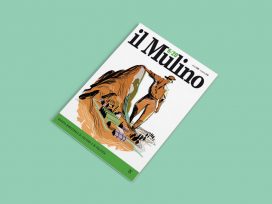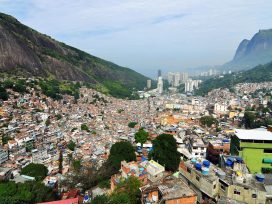The European Capital of Culture 2012 is rapidly disappearing from the consciousness of Maribor’s residents. It’s as though all the cultural developments of the past year have been shunted aside and the ECC completely overrun by life in the city. The last months have seen a series of Slovenian peoples’ uprisings to force the resignation of the mayor and, under the influence of several protest civil society groups, Maribor is gradually moving towards new forms of direct democracy at the local level. True, the team of the Maribor 2012 Public Institute did, through some rhetorical manoeuvring, try to claim credit for changing public consciousness in the city, as though the team itself had not come here in order to collaborate with this very mayor, now disgraced and out of office. And the very same ex-mayor, as the Institute announced recently, will receive a recognition award from them for his services to the ECC. Not only is this act seen as an affront by most Maribor protesters, it also serves as evidence of the cozy relationship between the directors of the ECC programme and the political authorities. Additionally, it serves to show how a portion of the Slovenian cultural elite, much like the political elite, live lives that are completely removed both from those of other cultural workers and from those of the average citizen.
As I have written several times before, the ECC as such is a political project, and the idea for it came from political circles in Maribor, with culture merely tasked with realizing the idea. Politics influenced the selection of people from the ranks of culture for this purpose. Despite the many arguments amongst the political elite, which, over time, completely destroyed the conditions required for a successfully executed and strategically well thought out program, there were still quite a few candidates willing to take on the management of the program. The team that eventually took over the helm of the project – very late in the day – evidently had no reservations about accepting the position and stuck with it till the very end, this despite of the irregular flow of funding from municipal coffers. We might ask what was so attractive about running this project that the cultural workers selected did not even think to say to the politicians “Look, if you want a high quality programme and you want us to take responsibility for it, then create the conditions needed for it to work, otherwise we are not interested.” Is Slovenian culture really at such a low level that it is prepared to work in any conditions and in association with any policy? Or – just the opposite – does it acquire special significance through political associations in large projects? Although the desired budget for the ECC was in the end drastically reduced, it was still the largest amount of funding for a cultural project in the country to date and the people in charge of the project had the power and authority to select and allocate money to contractors involved the programme, that is to say, to other cultural workers. Also, by carrying out the project, those involved automatically gained excellent references upon which to build their future careers.
Most local Maribor cultural organizations and individuals found themselves in a situation where they and their ideas were candidates for funding, were awarded it (or not) and then waited for repeatedly postponed payments. As shown by the responses – in this issue – to a questionnaire distributed to Maribor cultural workers, these funds both enabled an expansion of the programmes available for existing public institutions and provided a startup impetus for some young non-governmental organizations, as well as the possibility to pursue their ideas. Based on the data obtained so far, practically all cultural organizations and workers in the city participated – with one exception: the author of this editorial, or rather Aristej Publishing House, which publishes Dialogi. Not that I would like to present my decision as some sort of special heroism, since I paid for it dearly, but it is nevertheless a source of moral satisfaction for me. I have been involved in Slovenian culture for so many years, I have so much experience, and I know so many people in the field, that, when I saw how matters relating to the ECC were developing, I made the spontaneous decision not to waste my time and energy on it. Most of all I did not want to become tied to a client network. However, it was not as easy to stick to this decision as I had at first imagined. Namely, the organizers of the ECC were clearly of the opinion that due to the great importance attached to being a capital of culture, they had the right to include absolutely everything in the city in their programmes, without even consulting anyone or asking for permission. And so Dialogi also found itself listed in their announcements. Unfortunately we only discovered this when we were sent an invitation to an event in which they had designated us as participants without our knowledge. In order to protect ourselves from such “well-intentioned” manipulation, I had to publicly protest and deny our participation in the programme. This incident is also a fine example of how things were improvised in the programmes, thus virtually increasing the numbers of those involved. My desire to remain independent of the ECC became even more seriously threatened the moment it became clear that the municipality was cutting back and in some cases even eliminating budgetary funding for programmes and projects for non-governmental organizations operate outside of the ECC and with their own history prior to the ECC. For the sake of the ECC, local politicians were prepared to ruin everything that lay outside the project. But today it is clear that the culture that existed in the city before, and which, it is assumed, will continue to exist after it, in fact embodies that very sustainability of which the ECC representatives spoke so fulsomely. But none of this interests city officials: the ECC was quickly swept under the rug and the deadline for closing down the institute was moved up, and then, instead of, increasing funding for culture after the ECC, as recommended by the EU, it has once again been cut to old programmes. Those few new programmes, which came into existence with the help of the ECC are struggling desperately to gain recognition from local political authorities. The lesson that I gained from the experience was that being principled does not pay off in Slovenian culture.
Slovenian culture is not uniform, but socially stratified in an almost opaque way. There persists a combination of both the old socialist privileges of public institutes (whose directors are appointed by politicians and placed in particular forms of dependency, causing the majority to act extremely cautiously, remain neutral on social developments, and seek a safe haven in “professionalism”) as well as the crude market dependence of freelancers on obtaining public grants which are doled out by politicians, and on their content and conditions and government-appointed professional commissions which decide on the allocation of funds. Whoever succeeds in breaking into the most powerful client networks under these conditions is without a doubt the winner. The losers may not like him but they nevertheless enter into self-interested relationships with him. Few speak frankly and openly. If they did, this issue of Dialogi would be thicker than it is. There is no independence. The segments of Slovenian culture that went onto the streets and stood amongst the protestors were those who already found themselves at the margins of existence, while those at the other pole has gotten used to the language of the political elites. Outgoing program director of the ECC Mitja Cander still employs the high-flying rhetoric about the ECC that was used to inaugurate it. Not long ago he stated to the media: “The ECC has served Slovenian society as a sort of laboratory for many reflections, for example the definition of culture in modern times and its position in society.” Indeed, the ECC has illustrated very clearly that Slovenian culture independent of politics does not exist.
Slovenian culture has itself to blame that things have deteriorated as far as they have, and it will have to fight within civil society in order to achieve different and better conditions for its existence. For now all we can say is that achieving this will require much greater engagement than that shown by the response to our questionnaire, to which barely a tenth of Maribor cultural workers who participated in the ECC bothered to respond. The ECC was quickly swept under the rug, but it has left lasting changes in attitudes and relationships in the city’s culture. And this situation must now be examined and a new long-term plan for cultural life within the city will need to be designed. Those who still keep to themselves and work just their own little patch on the principle of “we’ll manage somehow” will no longer be able to rely on others organizing things for them. The survey also showed that those who are “on the market”, i.e. non-governmental organizations, are undoubtedly more active, while also having a lower standard of living and facing greater economic insecurity. However, these groups also frequently find themselves – as Brigita Pavlic, director of the non-governmental Festival Maribor wrote frankly in her response – facing the “dilemma about the hand that feeds you.” One thing, which has already become clear to Maribor protest groups is, that, until civil society becomes stronger than political parties, groups participating within cultural fields will remain prisoners of phantoms like the ECC.






